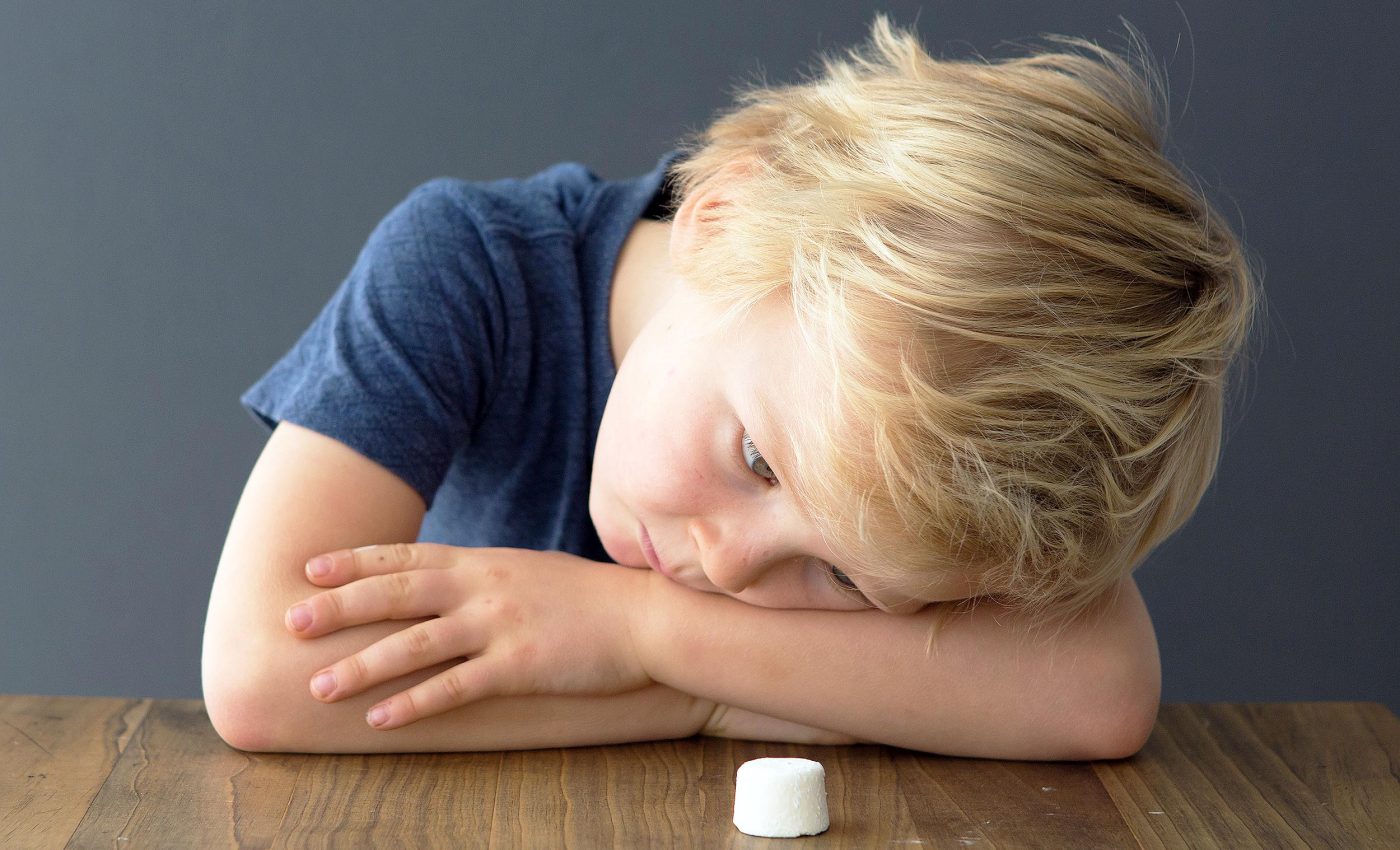
Unexpected twist observed when children take the marshmallow test
The marshmallow test has a fresh wrinkle, and it comes from the digital living room rather than the lab. The classic experiment has gone online, and it turns out that what another child says can make all the difference.
A new online study shows that five and six-year-olds are far more patient when another child simply says, “I promise I won’t eat mine.” Psychologist Rebecca Koomen and colleagues at the University of Manchester report the data.
Peer promises in the marshmallow test
The classic marshmallow experiment asked children to choose between one treat now or two later, highlighting the power of delay of gratification. Koomen’s team kept that basic setup but added a remote partner visible on screen.
Each child saw a partner who either made a clear promise to wait or wavered aloud about eating early. The children could not talk back, turning the interaction into a one way trust test.
Even with that silence, the social cue landed. When the partner pledged to wait, average latency before nibbling stretched to about 7 minutes, uncertainty cut it to roughly 4 minutes.
For younger participants the effect was starker: almost half reached the full ten minute mark in the promise condition, while only one in ten did so when the partner sounded unsure.
Waiting times tell the story
“Children in the promise condition waited longer to eat their treat than children in the social risk condition,” noted Koomen at the end of the analysis.
The numbers bear her out. In a distraction free subset, mean waiting time rose to 451 seconds with a pledged partner versus 220 seconds without.
That near doubling appeared despite the children never hearing reassurance from the researcher while they waited.
Girls, on average, held out about two minutes longer than boys in the marshmallow test, suggesting early sex differences in impulse control, although the authors caution that the study was not designed to probe that question.
Trust, cooperation, and tiny contracts
Developmental psychologists have long argued that kids grasp commitments early. A promise, even from a stranger on a screen, evidently signals reliability strongly enough to override temptation.
Koomen’s finding dovetails with earlier work showing that three year olds keep cleaning up toys longer after making a verbal commitment to help.
In everyday terms, a simple “I’ll wait if you will” may be as powerful for preschoolers as a written contract is for adults.
The result also reveals how social risk depresses cooperation. Hearing “I think I might eat this cookie” turned a cooperative gamble into a likely loss, and children adjusted their patience accordingly.
From marshmallows to adulthood
“Those 4 year old children who delayed gratification longer in certain laboratory situations developed into more cognitively and socially competent adolescents,” wrote Walter Mischel back in 1989 at Columbia University.
That famous claim sparked decades of research linking early patience to better grades, health, and earnings.
Yet follow up surveys of the original participants now paint a subtler picture.
A 2020 analysis of 113 adults found that preschool waiting time alone “does not predict the 11 mid-life capital formation variables” studied. Self regulation across the lifespan, not one childhood moment, turned out to matter.
Koomen’s work adds nuance rather than contradiction.
Patience is still valuable, but the study shows that context, here, the reliability of a peer, steers behavior. Children who trusted a partner were willing to invest time, when trust faltered, so did patience.
Marshmallow test lessons learned
The data hint at practical strategies. Children thrive on clear, reciprocal commitments, so adults can model explicit verbal promises when cooperation is required.
Saying “I’ll finish my work while you finish yours” may encourage shared persistence more than vague encouragement does.
Virtual classrooms could also leverage brief peer pledges to boost collective focus. Because Koomen’s trial ran entirely over Zoom, the method scales easily to distance learning setups where managing attention is notoriously hard.
At home, parents might notice that siblings keep each other honest when both know the rules. A mutual vow to hold off on snacks until everyone is seated could work better than reminders shouted from the kitchen.
Challenges and next steps
The study sampled mainly white, middle class families in northern England, so replication across cultures will be crucial.
Researchers will also want to test symmetrical communication, if both children could promise one another in real time, patience might climb even higher.
Another open question is how long the effect lasts. Does learning that promises matter today shape impulse control tomorrow?
Longitudinal tracking would tell whether brief social contracts plant longer term habits.
Marshmallow test and the big picture
Neuroscientists meanwhile continue exploring the brain circuits that weigh immediate versus delayed payoffs, hinting that social reliability cues may interact with reward processing regions.
Bridging behavioral data with neural measures could help explain why a single sentence from a peer sways a child’s choices so strongly.
Self control is neither fixed nor purely internal. It moves with the social winds, and a peer’s simple, credible pledge can tip the balance toward patience.
For parents, teachers, and anyone hoping to cultivate persistence, that is both a caution and an opportunity.
The study is published in Royal Society Open Science.
—–
Like what you read? Subscribe to our newsletter for engaging articles, exclusive content, and the latest updates.
Check us out on EarthSnap, a free app brought to you by Eric Ralls and Earth.com.
—–













